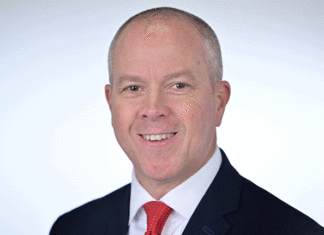Green building is busting out all over Southwest Washington this spring, with public and private entities partnering on a sustainable neighborhood and a solar home breaking ground in Washougal.
Building a community
In mid-March, Project GreenBuild was recommended to receive a contract with Clark County to lead the county’s Sustainable Communities project, creating a sustainably built development with residential and possibly commercial construction.
There’s also hope that the effort will urge local government agencies to agree on changes to green building codes that would be consistent throughout the region, said Brandon Tauscher, executive director of Project GreenBuild.
“A lot of the issues surrounding green building end up being under the jurisdiction of multiple agencies, so we wanted to invite all of those agencies to the table,” he said.
The Board of Clark County Commissioners has yet to approve the contract with Project GreenBuild, but if it wins the bid, the La Center-based nonprofit’s partners on the effort will be Greenstone Architecture and Mackay and Sposito, both of Vancouver.
Tauscher hopes work on the project will begin with visioning meetings this summer.
Much of the discussion will likely come from recent research by the city of Vancouver to determine local barriers to sustainable building.
Currently, many jurisdictions do not have protocol for handling builders’ and homeowners’ requests for green projects, such as installing wind turbines or water treatment systems, said Marian Lahav of the city’s Community Planning Department in a December interview.
With many sustainable projects, builders must prove the effectiveness of their green materials and methods, even when they have been proven elsewhere, she said.
“Each applicant has to reinvent the wheel,” Lahav said.
Solar innovation
Meanwhile in Washougal, construction of an innovative solar house has brought together homeowners Dennis and Janice Harvey, Vancouver-based Quail Homes, the city of Washougal, and developers of Washougal-based Granite Highlands housing development, where the house will be built.
This will be Southwest Washington’s first home designed to earn platinum certification by the United States Green Building Council. There are six LEED platinum homes in Washington, according to Quail Homes.
The Harveys built their first solar house 27 years ago in Grants Pass, Ore. This project is funded through the Jade Preservation Trust, which the couple represent. They will live in the house once it is complete in August.
The home’s exterior walls and roof will be built with air-tight Structured Insulated Panels pre-fabricated in Boise by Precision Panel. A 1.8-kilowatt wind generator and a 3-kilowatt solar panel array will provide power to the home, and its water also will be heated with solar energy.
The home is oriented to the sun to maximize heat gain in winter and minimize it in the summer. Its designer is John Mead of McMinnville-based Cellar Ridge Custom Homes.
“This is not rocket science we’re doing,” said Dennis Harvey. “The Incas did this 700 years ago.”
The Harveys declined to share the cost of the project.
Instead of a water-logged lawn, the yard will be fully landscaped with native plants and trees that require minimal watering from the home’s drip irrigation system of reclaimed rainwater.
It’s rare to landscape without a lawn, said Dennis Harvey, but Granite Highlands approved the plan, which was designed by Shannon Lester of Bend-based Blooming Desert Design.
“One of the most difficult things I expected in putting this house together was (working) with the city,” said Dennis Harvey. “These people are 110 percent, and that doesn’t happen very often.”
Hold the green
While the solar house moves ahead, two residential projects of Project GreenBuild are on hold.
The Living Building Challenge home in Felida is on hold due to financial difficulties of its builder, Vancouver-based Fazzolari Custom Homes, Tauscher said. It also was determined that soil at the project’s original site would not meet zero-runoff stormwater requirements.
Layout and design are near complete for Vancouver City Councilman Tim Leavitt’s Mainstream Green house, but that project also needs a home. The owner of its original site increased the land price when he heard of the project’s notoriety, Tauscher said.
Once the Mainstream Green House gets a site in East Clark County, Leavitt will likely partner with the Clark County Skills Center to have students build the home, Tauscher said.
It will serve as a sustainability education center before Leavitt moves in.
Charity Thompson can be reached at cthompson@vbjusa.com.




